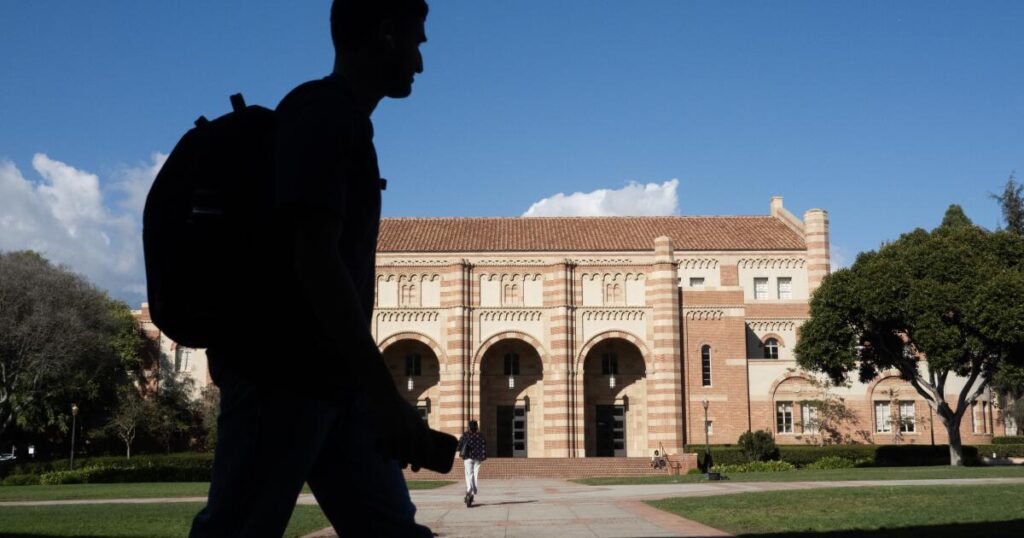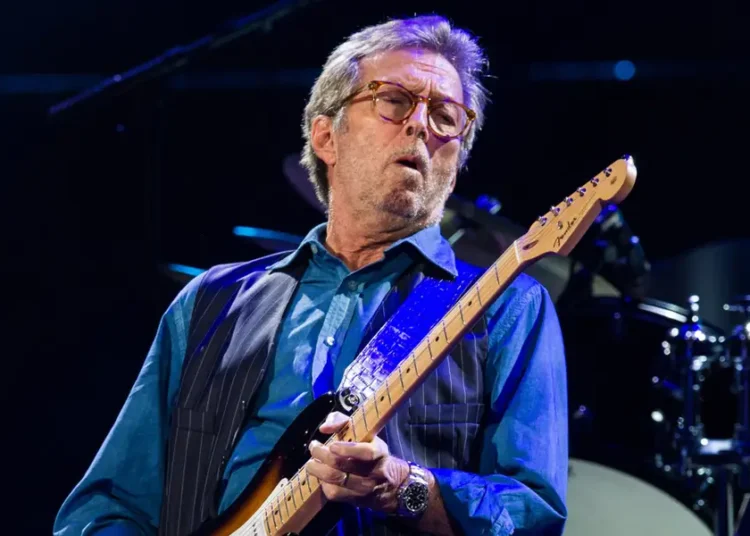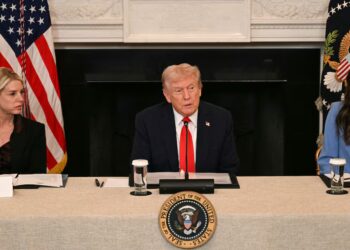On Nov. 14 the faculty and staff of the University of California won a significant victory over President Trump in his effort to fine UCLA $1.2 billion for resisting his efforts to bend the university to his ideological demands.
Finding that the plaintiffs submitted “overwhelming evidence” that Trump and his cabinet members pursued a campaign of cutting off government funding with the goal of “bringing universities to their knees and forcing them to change their ideological tune,” federal Judge Rita Lin of San Francisco blocked the fine and nearly $600 million in funding cuts. She ordered the money to start flowing again.
Lin’s ruling resembles those by other federal judges who blocked Trump’s funding cutoffs. Faculty and staff representatives, with the American Assn. of University Professors as the lead plaintiff, justly celebrated the UC injunction, even though it’s likely that the government will appeal.
But two entities with an interest in the case’s outcome have been silent: the state of California and UC itself. Neither joined the AAUP lawsuit, which was filed in September, and neither has commented since.
It’s not as though the state and the university are blind to the potential impact of Trump’s funding cutoff. When Trump’s demands and threats were made public in August, Gov. Newsom termed them “extortion” and threatened to sue. UC President James B. Milliken said the announced cuts would be a “death knell for innovative work that saves lives, grows our economy and fortifies our national security.”
Addressing the UC Board of Regents at its meeting Wednesday, Milliken stated that the university system still faces the loss of more than $1 billion in federal research funding, but didn’t mention the AAUP lawsuit.
UC reportedly has continued negotiations with the White House. A UC spokesperson wouldn’t comment on any such talks, even to confirm them. A spokesman for Gov. Newsom said he’s closely watching the numerous court cases challenging Trump’s funding threats, and “he’s pleased with the recent court rulings affirming that Trump’s assault on California’s world-class research institutions was reckless and illegal.”
Let’s keep in mind what’s at stake in this battle. The University of California is the premier public university system in the nation. It’s the second-largest employer in the state and one of the most important providers of healthcare. The productivity of its research is spectacular. Much of the universities’ work is supported by the government — $17 billion a year, including matching Medicaid and Medicare funding and student aid.
“We were hopeful that the UC system would defend itself legally,” says Veena Dubal, a law professor at UC Irvine and general counsel to the AAUP. After UCLA published the administration’s 27-page list of demands in August, she says, the AAUP decided it couldn’t wait any longer: “We couldn’t not sue, they were so outrageous.”
The demands included bans on diversity programs, public demonstrations across much of the campus and provisions for transgender students. UCLA also would be required to refuse admission to foreign students “likely to engage in anti-Western, anti-American, or antisemitic disruptions,” and to comply with Trump’s ban on “gender ideology” — that is, defining males and females as anything other than the sex they were assigned at birth.
The state and the UC system haven’t entirely avoided legal jousting with Trump. California led seven other states into federal court to challenge the Dept. of Education’s termination of $65 million in grants funding programs that included diversity, equity and inclusion initiatives. They won at the trial level, but the Supreme Court stayed that ruling on grounds that the case may have been brought in the wrong federal court.
The regents also joined a lawsuit brought by the Assn. of American Universities and 13 other universities challenging the Dept. of Health and Human Services limit on reimbursements for overhead costs on government-funded research, which would cost universities billions of dollars. They won at the trial level, but the government appealed that ruling. The state also sued Trump or participated in lawsuits on other topics.
One can understand, even sympathize with, the reluctance of UC to pursue a courtroom fight over Trump’s demands. UC faces the same quandary as other institutions that have tried to reach accords with the administration.
Trump has almost unlimited tools at his discretion to harass his adversaries for years to come through endless “investigations” of purported statutory violations, among other things. Courtroom battles take time and money, resources that may never be recovered. Plus with a pro-Trump majority on the Supreme Court, ultimate victory is nothing like a certainty.
And while Trump’s term won’t last beyond January 2029, at which point his anti-university campaign might end, that may be cold comfort for institutions facing an immediate financial crisis.
“It may be hard for an educational institution to ride this out until 2029,” says Dan Schnur, a veteran political consultant on the faculty of UC Berkeley’s Institute of Governmental Studies. “For an institution that budgets on an annual basis, three years is a long time, and for a student, it’s three-fourths of an undergraduate experience.”
That brings us to the case the UC faculty and staff made in court. It’s as clear and concise a description of the noxious campaign Trump has conducted against American higher education that one will find anywhere. It was accepted almost in its entirety by Judge Lin.
The administration consistently has portrayed the funding cutoffs as a response to what it claims to be pervasive antisemitism at UCLA and other targeted campuses. Yet as federal Judge Allison D. Burroughs of Boston found in September when she blocked Trump’s grant terminations against Harvard, it’s “difficult to conclude anything other than that [the government] used antisemitism as a smokescreen for a targeted, ideologically-motivated assault on this country’s premier universities.”
Indeed, the UC plaintiffs show that the funding cutoffs were motivated purely by ideology, and flagrantly infringed on free speech rights. Just a week after Trump’s inauguration, the White House issued an order suspending all financial disbursements that involved “DEI, woke gender ideology, and the green new deal.” (“DEI” refers to programs aimed at diversity, equity and inclusion, a favored target of the right.)
The faculty lawsuit quotes Leo Terrell, an assistant attorney general for civil rights and a named defendant, telling Fox News, “The academic system in this country has been hijacked by the left, has been hijacked by the Marxists.” He said, “We’re gonna bankrupt these universities. We’re gonna take away every single dollar.” In an interview he said he had “targeted 10 schools. Columbia, Harvard, Michigan, UCLA, USC… We’re going to take away [their] funding.”
The lawsuit positions the administration’s campaign against UCLA against its similar attacks on funding at Columbia, Brown and Harvard. It also points to the folly of trying to settle with Trump out of court.
Columbia was among the first universities to settle with Trump — it agreed in March to a $221-million payment and to give the government extraordinary oversight of its hiring, pedagogical and social policies in order to free up $400 million in blocked funding and restore access to billions of dollars in current and future federal grants.
But the capitulation didn’t yield those results. Instead, Trump blocked a further $1.2 billion in funding until Columbia agreed to additional demands in July.
As Judge Lin described the government campaign against UCLA and other universities launched by the White House, it starts when “one or more … agencies open civil rights investigations into a university…. Before the investigations are concluded, Funding Agencies cancel large amounts of federal funding.” Then the Justice Department offers to settle with the targets “in exchange for further burdening faculty, staff, and student speech.”
It’s theoretically possible that the Trump administration could make its funding cutoffs stick if it follows the procedures enshrined in law for terminating federal grants (and it may yet prevail in appeals to the Supreme Court).
The rules require government agencies to issue a notice of possible violation and attempt to negotiate a settlement and hold a hearing, then file a report with the House and Senate specifying “the circumstances and grounds for such action” and wait at least 30 days more before canceling any funding. The cancellations can apply only to the specific program deemed to be violating the law.
The goal of these safeguards, Lin observed, is to protect grant recipients from “‘vindictive’ or ‘punitive’” actions by the government. In these cases, the government followed none of the mandated procedures.
The administration‘s defense, in part, is that the funding cutoffs are entirely within its discretion and can’t be reviewed by a judge, assertions Lin specifically rejected. The administration also stated that the August demand letter to UCLA was merely an “opening settlement offer” in ongoing “confidential settlement negotiations” with the university.
Given the findings from federal judges that Trump has flouted the legal safeguards against abrupt and arbitrary grant cancellations in favor of illicit bullying, the question facing universities trying to negotiate their way out is: What is there to negotiate? The record so far indicates that no settlement will fully satisfy Trump or his anti-woke warriors; only judges can bring the campaign to a halt.
It’s certainly true that in the short run, Trump’s targets will suffer great pain. He knows well that they’re vulnerable to blunt force. “With every day that passes,” Lin observed, “UCLA continues to be denied the chance to win new grants, ratcheting up [the government’s] pressure campaign.”
In the long run, however, there are limits to how much an educational institution can concede.
One is tempted to recall what Michael Corleone said in “The Godfather Part II” when he was being bullied by the corrupt Sen. Pat Geary into paying a bribe: “My offer is this,” he said. “Nothing.”
It may not be so easy for even powerful universities to take such an uncompromising stand. But it may be necessary.
The post The UC faculty just won a big court victory over Trump. But why didn’t UC join their lawsuit? appeared first on Los Angeles Times.




